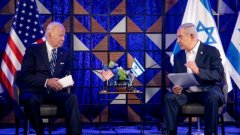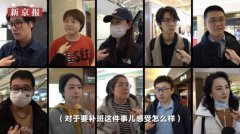Now what Singaporeans are facing are actually not the "broken roots" or "root" problem in language and culture, because both are already in a state of completion.At this time, the fate of thinking about mother tongue should be more meaningful to talk about how to avoid the decline of mother tongue from the perspective of maintaining cultural diversity and language diversity.
Will Singapore people gradually lose their multi -language advantages?Singapore is a country known as a diverse race and multiculturalism. Children of all races must learn their mother tongue courses, but the degree of mother tongue of each ethnic group is not as good as the first generation.Although people from all walks of life have continued to propose a lot of methods to improve their mother tongue, the decline of mother tongue seems to have become a trend, which is impressive.However, this trend is not understandable, nor is there no room for turning.Therefore, I want to try to interpret such a trend from another angle.
After the Second World War, the independence and rise of the Southeast Asian nation -states have gone through many challenges in the pursuit of identity identity in Southeast Asia.From the cognition of their ancestors as "Chinese", they transitioned to the nationals who became their actual place of residence, and experienced a complex cognitive process.The historian Wang Yanwu, in the book of the autobiography, revealed the journey of finding his identity.
This book starts from the students of the University of Malaya (predecessor of the National University of Singapore) in 1949, and introduced language and identity issues from the beginning.At that time, he wanted to study British literature and chose two disciplines of economics and history.In the era of anti -colonialism, everyone knows what kind of country to build in the Malayan region after the British leave?Wang Yanwu and college students at the time were very concerned about the fate of Malaya. They cut in from the perspective of language and literature. On the one hand, they sought their identity as their identity.Help.
He quoted a British lecturer at the time that Malaya was a diverse society, mainly composed of descendants of Malays, Chinese and Indians.Used Chinese.However, in the process of studying, he also began to doubt whether it was feasible to express everything that is different from the British tradition, especially after he went to the Philippines to participate in a youth writer's lecture class, and he felt more and more of a foreign language to expressA new national identity is Yuanmu for fish.
Since then, he has begun to think about the feasibility and uniqueness of Malay Asian literature, and has never given up everything related to thinking, identity, and political identity.His thoughts made him finally abandon the professional line of British literature and turned to historical research. Later, he also actively learned Malay and Indonesian.After the establishment of Nanyang University, as the chairman of the former review course committee, he submitted a report that caused controversy later, but when Singapore was submitted in April 1965, Singapore had not founded the country independently.Based on the basic awareness of Nanyang University's continued teaching in Chinese, he proposed in the report that not only fluent in Chinese, fluent English, and even fluent in three languages, it will be the advantage of these students.What is Malaya?What is Malaysia?What is Singapore?State recognition on the basis of multi -ethnicism, multi -language, and multi -culture is a problem that people have to face at that time, and multi -language coexistence is also the characteristics of this region.
Not a simple language and cultural issue
After 1949, Wang Yanwu has been seeking an identity of a Malayan identity, including Singapore, until the establishment of Malaysia later.What is the significance of learning English?He said that for the future of millions of overseas Chinese, it is a core issue because they want to be the national citizens in the second hometown.It can be seen that from that era, from that era, it was no longer simply a language and cultural issue, but was bundled with identity and political identity.
The famous director Chen Zheyi mentioned in an interview in 2019: "The current Singapore is almost a state of broken roots whether Chinese, Indians, or Malay people are now in a state of breaking roots."The state of "breaking roots" is not a trend that has only begun in recent years. At least since 1949, it is a state experienced by many Chinese people like Wang Yanwu's generation.The so -called "broken roots" is a complicated emotion. It both agrees with a long -term culture, and it is actually gradually alienated. Sometimes, it is better to say that it is an indifferent.
After Singapore's independence, the new government continues to condense various ethnic groups with English. Now it seems that the true mother tongue in the minds of the new generation of Singaporeans seems to have become English, but in fact this process is not happened overnight.I once read the library collection, and accidentally saw some reports of the past in the United Zard. Among them, the newspapers on April 1, 1983 mentioned two issues related to education. One was the first language in English.The "group of departure students" in the O level encountered difficulties when they were promoted to the university first. I hope that the Ministry of Education will be able to integrate the conditions of these students.On April 2nd of the same year, a report on the topic of "parents do not send their children into the Chinese school, and the excuse of Chinese language is difficult to learn."At the same time, it was also mentioned that at that time, the national average of the first Chinese and English primary Chinese, 79%and 44%, respectively.It can be seen that at the time, the English level of Singaporeans was not very good, but people wanted to send their children into the English school.
After so many years, the Singaporeans finally successfully turned English into a language used by all ethnic groups.The tension between the identity of the so -called mother tongue and the political identity, the suspicion of loyalty to the country, is also cautiously hidden.People seem to have reached a consensus, carefully avoiding political issues to linked to language.I think this is a new process of "rooting", rooting on the land of Singapore.The Singaporeans have completed the process of new political identity and identity after the founding of the main language.
The Singaporeans are not now facing the "broken roots" or "root" problem in language and culture, because both are already in a state of completion.Every Singaporean, no matter which race, now basically has a clear national identity and identity. It is first of all Singaporeans.Then think about the fate of mother tongue at this time, and should stand in a new dimension to transcend cultural identity, identity, political identity, and look at this problem to go out a new way.From the perspective of maintaining cultural diversity and language diversity, it is more meaningful to talk about how to avoid the decline of mother tongue.Just like the efforts of humans to save endangered species, they need to work together to work together.Only when people recognize from the heart that multi -language is an indispensable national characteristics of Singapore, saving mother tongue becomes the common responsibility of all ethnic groups, and the new generation has inner motivation to inherit the mother tongue.
The author is a former media person and creator of children's books



